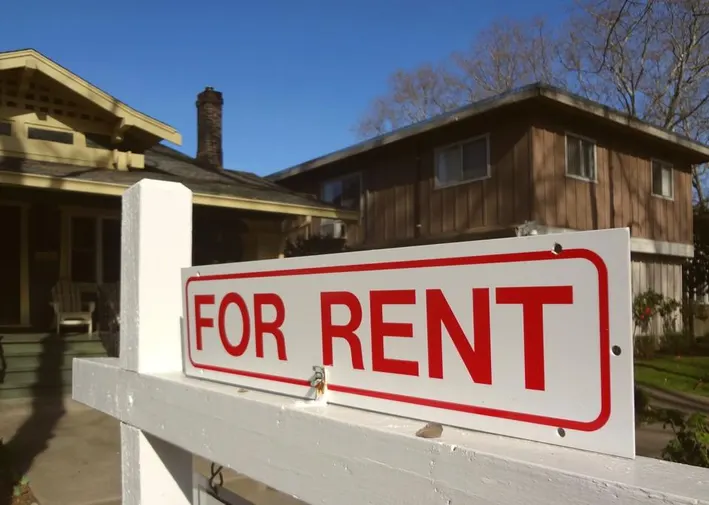Renting a home in New Hampshire can be a great way to find flexible housing options, but it’s essential for tenants to understand their rights and responsibilities, especially when it comes to rent increases. New Hampshire has unique landlord-tenant laws, and while there are no rent control measures in place, there are still important guidelines landlords must follow regarding rent increases. This article will provide an overview of the key aspects you need to know as a tenant in New Hampshire in 2024.
Absence of Rent Control in New Hampshire
Unlike some other states, New Hampshire does not have rent control laws. Rent control typically refers to government-imposed regulations that limit the amount a landlord can increase rent within a specific period. In the absence of rent control, landlords in most New Hampshire cities and towns have the freedom to set rent prices and increase them as they deem fit.
Notice Requirements for Rent Increases
Even without rent control, landlords in New Hampshire are required to provide tenants with adequate notice before increasing rent. The standard notice period for a rent increase is:
- 30 days’ notice: This applies to most rental agreements, including month-to-month tenancies or leases without a fixed term.
It’s important to note that landlords cannot increase the rent during a fixed-term lease unless the lease agreement specifically includes a provision allowing for it.
Reasonable Rent Increases
While landlords have a large degree of freedom in setting rent increases, the concept of “reasonableness” still applies in New Hampshire. Landlords cannot use rent increases excessively or in a way that would be considered retaliatory or discriminatory. Tenants facing what they believe to be unreasonable rent increases may consider seeking legal advice or exploring dispute resolution options (discussed later in the article).
Protections for Tenants in Specific Situations
- Retaliatory Rent Increases: New Hampshire law prohibits landlords from raising the rent in retaliation for a tenant exercising their legal rights. These rights include reporting housing code violations, organizing with other tenants, or joining a tenants’ union. If you suspect a rent increase is retaliatory, it’s crucial to document the situation and consider seeking legal counsel.
- Mobile Home Parks New Hampshire has specific laws addressing rent increases for tenants in mobile home parks. Landlords in these parks are required to follow these guidelines:
- 60 days’ notice: Landlords must provide at least 60 days’ written notice of a rent increase.
- Explanation for the Increase: The notice must include a clear explanation for the reason behind the rent increase.
Tenant Resources and Support
If you are experiencing issues with rent increases or other landlord-tenant matters in New Hampshire, there are resources available to assist you:
- New Hampshire Legal Assistance (NHLA): NHLA (https://www.nhla.org/) provides legal aid services to low-income residents facing housing issues.
- New Hampshire Housing Finance Authority (NHHFA): The NHHFA (https://www.nhhfa.org/) offers programs and resources for renters, including information on tenants’ rights.
- Local Tenant Organizations: Search for tenant organizations or unions in your specific city or town within New Hampshire.
Local Variations and City-Specific Considerations
While the general principles of New Hampshire landlord-tenant law apply statewide, it’s important to be aware that some cities may have additional ordinances or regulations related to rent increases or other tenancy matters. Examples include:
- Nashua: Nashua may have resources or programs specifically designed to assist tenants, particularly low-income residents. Check the city’s website for available housing resources.
- Manchester: As the largest city in New Hampshire, Manchester might have greater tenant advocacy organizations or legal aid services more readily available.
- Smaller Towns: Tenants in smaller towns in New Hampshire should contact their local town hall or municipal government for information about specific regulations or resources.
Frequently Asked Questions (FAQs)
Q: Can my landlord raise my rent as much as they want?
A: While New Hampshire lacks rent control laws, landlords must still generally consider the concept of “reasonableness” when increasing rent. Excessively high or potentially retaliatory increases could be challenged by tenants.
Q: Can my landlord raise my rent during my lease term?
A: Unless your lease agreement specifically allows for rent increases during the lease term, your landlord cannot raise the rent until your current lease expires.
Q: What can I do if I believe my rent increase is unfair or retaliatory?
A: Document the details of the situation, including any communication with your landlord. Contact New Hampshire Legal Assistance, a local tenant organization, or an attorney specializing in landlord-tenant law for advice on your options.
- Does New Hampshire have any laws limiting late fees for rent?
- Yes. Landlords can only charge late fees if there is a provision about late fees included in the written lease agreement.
Conclusion
Understanding New Hampshire’s rent increase laws is crucial for tenants to protect their rights and ensure fair housing practices. While landlords have a fair amount of discretion when setting rent increases, tenants are not without protections. By being aware of notice requirements, the concept of “reasonableness,” and the resources available for support, New Hampshire tenants can navigate potential rent increases in 2024 and beyond.
Sources
- New Hampshire Legal Assistance: https://www.nhla.org/
- New Hampshire Housing Finance Authority: https://www.nhhfa.org/
- New Hampshire Revised Statutes Annotated (RSA), Chapter 540: Landlord and Tenant (https://courts-state-nh-us.libguides.com/rentincreases)
- American Apartment Owners Association – New Hampshire Landlord Tenant Laws: https://www.american-apartment-owners-association.org/landlord-tenant-laws/new-hampshire/
Disclaimer This article is intended to provide general information on New Hampshire rent increase laws and should not be considered legal advice. If you are facing a specific legal issue related to rent increases or other tenancy matters, it is always recommended to consult with an attorney specializing in landlord-tenant law.



